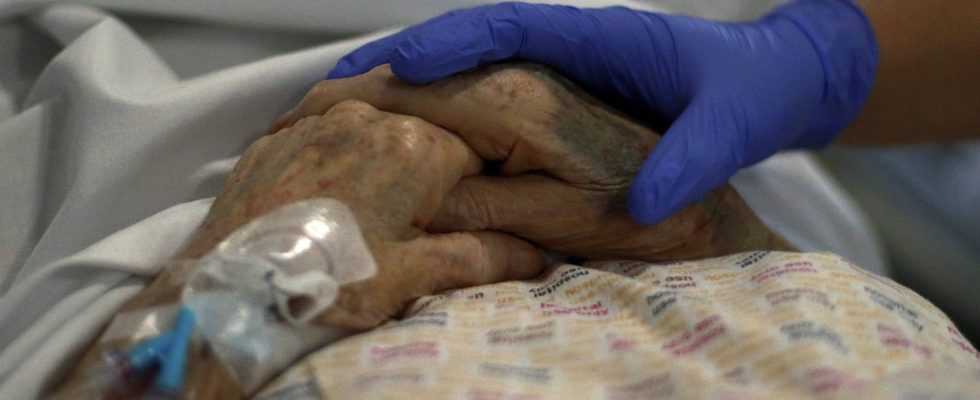The draft law on the end of life is examined by the deputies from April 22 and the text could be modified. Among health personnel, a condition of access to assisted dying is particularly debated.
New stage in the legislative process of the bill on the end of life: from Monday April 22 and for one month a special committee of the National Assembly will scrutinize the text and conduct numerous hearings. The text will then arrive in the hands of all deputies from May 27. This long period of examination could cause the text to evolve and delete, modify or clarify certain provisions. One of them, which makes access to assisted dying conditional on a “short or medium term vital prognosis”, does not convince health personnel whether they are for or against the bill.
The absence of a clear definition of what is a “short or medium term vital prognosis” raises questions. The Minister of Health, Catherine Vautrin, tried to clarify these deadlines, evoking on France 2 a period of “a few days or a few months” for the short term and ranging from “six to twelve months” for the medium term. Estimates taken from the “reading of the High Authority of Health”. But another definition of short term used in the Claeys-Leonetti law of 2016 and given by the French Society for Support and Palliative Care (Sfap) provides for a temporality of “a few hours or a few days”.
An assumed vagueness, but counterproductive?
Although they are different, neither of these two definitions is unanimously accepted by doctors. They remain too vague to provide guarantees to caregivers who will practice assisted dying according to Jean Daquin, doctor and national delegate in charge of the caregivers commission within the Association for the Right to Die with Dignity (ADMD). “Will the estimate be the same for a loved one, a caregiver or a lawyer? If there is a trial, how can we define this short or medium term?”, he asked on franceinfo in March.
The other limitation of these definitions subject to interpretation is that they could make the law on the end of life inapplicable. “This notion of vital prognosis engaged in the short term has already made the Claeys-Leonetti law very restricted” and could have the same consequences on the new text analyzes Martine Lombard, jurist and professor emeritus of public law at the University of Paris II-Panthéon -Assas, in The Express. Some doctors fear that these short and medium term temporalities will be used by health professionals opposed to assisted dying to refuse to end the life of a patient who requests it.
However, the absence of a clear definition for “vital prognoses undertaken in the short and medium term” is assumed by the MP and former Minister of Health who worked on the text, Agnès Firmin Le Bodo. “Define a term [précis]it would perhaps, within a few days, prevent someone from benefiting from assistance in dying” she explained on the microphone of franceinfo on April 22. The elected representative of the presidential majority (Horizons) has also suggested her desire not to further specify the temporalities.
Vital prognoses difficult to assess
Health professionals opposed to assistance in dying also express reluctance about this measure conditioning access to assistance in dying on a vital prognosis engaged in the short or medium term. And for good reason, beyond a few hours, it is difficult to establish a prognosis on the time the patient has left to live. “We are very regularly wrong about a potential estimate of life expectancy” underlines Stéphanie Träger, oncologist and palliative care doctor in Paris, on franceinfo. Even when a prognosis is given, a patient’s condition can still change and make the estimates lie: patients who see their condition suddenly worsen and others who were given little time to live who stabilize . As prognoses are not an exact science, but only calculations based on statistics, some doctors fear that patients will choose assisted dying when they have a chance of seeing their condition improve.
